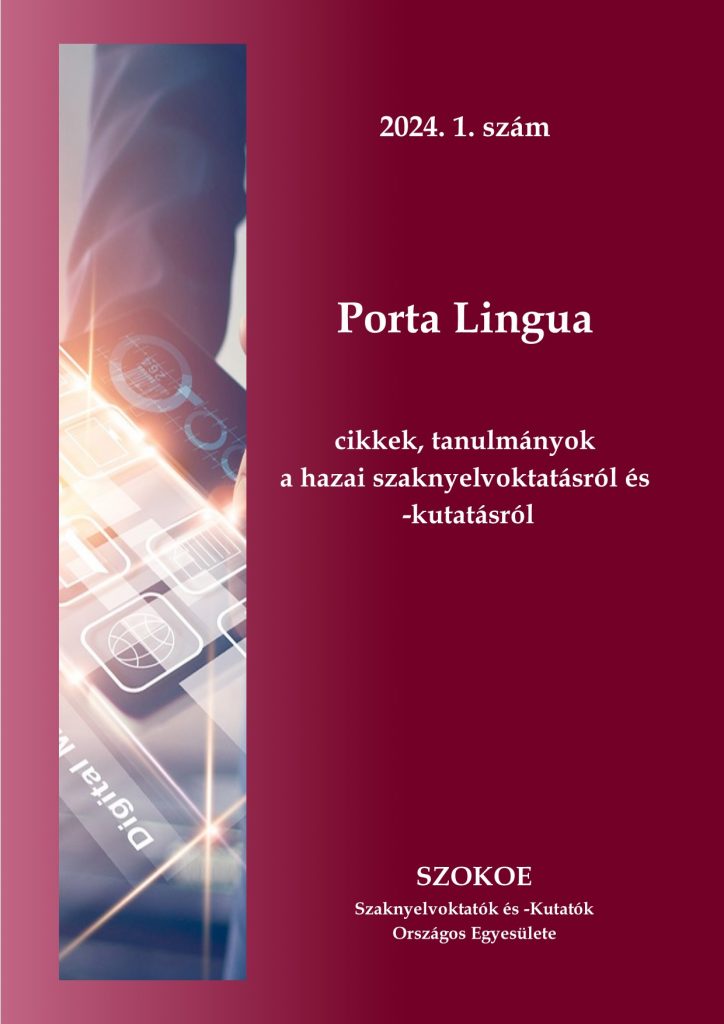Török Judit – Benke Eszter
Az esetmódszer a tanteremben: egy interkulturális kommunikáció kurzus tapasztalatai
![]()
Török, J. – Benke, E. (2024): Az esetmódszer a tanteremben: egy interkulturális kommunikáció kurzus tapasztalatai. Porta Lingua. 2024/1. 137-144
DOI: https://doi.org/10.48040/PL.2024.1.15
Absztrakt
Az esettanulmányok hosszú ideje népszerűek a kutatásban, az oktatásban és az üzleti szférában. A valós problémák kontextus-specifikus elemzése, az egyedi esetek megvitatása és az autentikus szituációkban való megoldáskeresés fontos szerepet tölt be a menedzsment eszköztárában, a kutatásmódszertanban és az oktatási stratégiák sorában. A vizsgálat középpontjában az esetmódszer pedagógiai alkalmazása áll: a módszer kialakulásának és legfontosabb jellemzőinek rövid áttekintése után a dolgozat az esetmódszer egy speciális formájára, az esetpéldák tantermi alkalmazására fókuszál. A tanulmány konkrét példán keresztül, egy interkulturális kommunikáció kurzus tapasztalatai alapján kívánja a módszer hatékonyságát bemutatni hallgatói visszajelzések segítségével. A kurzus az esetmódszer által jellemzően fejlesztett készségek, mint a kritikai gondolkodás, a problémamegoldás, döntéshozatal mellett különös hangsúlyt helyez azokra a készségekre, amelyeknek az interkulturális kommunikáció során kiemelt szerepe van. Ilyenek az empátia, a szemléletmódváltás, valamint az alkalmazkodóképesség. A hallgatók visszajelzései a kurzus értékelése során azt támasztják alá, hogy e problémaalapú tanulási módszerrel a 21. századi munkavállalói kompetenciák szisztematikusan, hatékonyan és élvezetes formában fejleszthetők.
Kulcsszavak: esettanulmány, esetmódszer, problémaalapú tanulás, munkavállalói készségek, kompetenciafejlesztés
____________________________________________________________
Case studies have long been popular in research, education and business. The context-specific analysis of real problems, the discussion of specific cases and the search for solutions in authentic situations play an important role in management toolkits, research methodologies and educational strategies. The focus of the study is on the pedagogical application of the case method: after a brief overview of its development and main characteristics, the paper focuses on a specific form of the case method, the classroom application of case studies. The paper aims to demonstrate the effectiveness of the method through a specific example, based on the experience of an intercultural communication course, using student feedback. In addition to the skills typically developed by the case method, such as critical thinking, problem solving and decision making, the course places particular emphasis on those skills that are particularly important in intercultural communication. These include empathy, cognitive flexibility and adaptability. Student feedback from the course evaluation confirms that this problem-based learning method can be used to develop 21st century workplace skills in a systematic, effective and enjoyable way.
Keywords: case study, case method, problem-based learning, workplace skills


 Porta Lingua 2024. 1. szám
Porta Lingua 2024. 1. szám